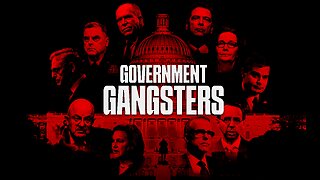The Tense Triad: Israel, Iran, and the US
The Tense Triad: Israel, Iran, and the US by jake's Workspace
In the ever-dynamic landscape of international relations, few regions command as much attention and scrutiny as the Middle East. Amidst the geopolitical intricacies that define this region, the relationship between Israel, Iran, and the United States emerges as a focal point, fraught with tension, diplomacy, and conflict.
The Power Players
Israel, a small yet formidable nation, stands as a beacon of stability and military prowess in the tumultuous Middle East. With a rich history dating back millennia, Israel has navigated a complex geopolitical environment with resilience and strategic acumen.
Iran, on the other hand, emerges as a regional powerhouse, boasting a rich cultural heritage and a fervent commitment to its national interests. However, Iran's nuclear ambitions and support for militant proxies have drawn the ire of the international community, particularly the United States and Israel.
The United States, a global superpower, wields immense influence in the Middle East, both diplomatically and militarily. With a longstanding alliance with Israel and a history of confrontation with Iran, the US plays a pivotal role in shaping the dynamics of the region.
The Complex Nexus
At the heart of the Israel-Iran-US triad lies a web of competing interests, historical grievances, and strategic calculations. Iran's quest for regional hegemony and its support for militant groups such as Hezbollah pose a direct threat to Israel's security, prompting the latter to adopt a proactive stance in countering Iranian influence.
Simultaneously, Israel's close alliance with the United States serves as a bulwark against Iranian aggression, with the US providing military aid and diplomatic support to safeguard Israel's interests. However, tensions between the US and Iran have escalated in recent years, exacerbated by Iran's nuclear program and regional adventurism.
Navigating the Minefield
Against this backdrop of geopolitical tensions, diplomatic maneuvers and military posturing have become commonplace, as each actor seeks to advance its interests while avoiding outright conflict. The US, under successive administrations, has employed a mix of sanctions, diplomacy, and military deterrence to contain Iran's influence and prevent it from acquiring nuclear weapons.
Meanwhile, Israel has pursued a policy of strategic ambiguity, neither confirming nor denying its nuclear capabilities, while maintaining a robust military posture to deter potential adversaries. Through preemptive strikes and covert operations, Israel has demonstrated its resolve to prevent Iran from obtaining nuclear weapons and destabilizing the region.
Looking Ahead
As the geopolitical landscape continues to evolve, the dynamics of the Israel-Iran-US triad are likely to remain fluid and unpredictable. While diplomatic efforts to defuse tensions and reach a comprehensive agreement on Iran's nuclear program persist, the specter of conflict looms large, fueled by mutual distrust and competing strategic imperatives.
Ultimately, the fate of the Middle East hangs in the balance, as the actions of Israel, Iran, and the United States shape the contours of regional stability and security. In this high-stakes game of geopolitics, the Tense Triad stands as a testament to the enduring complexities of international relations in the modern era.
OUTLINE:
00:00:00
The Tensions Begin
00:02:11
The Nuclear Ambitions
00:04:09
The Covert Operations
00:06:25
The Proxy Wars
00:08:11
The Current Standoff
00:10:14
Conclusion and Summary
-
 15:52
15:52
Scammer Payback
1 month agoScammers Located in this Apartment
188K69 -
 10:41
10:41
Breaking Points
3 days agoARSON, 'FREAK OFFS', LUBE: Diddy Indictment SHOCKING DETAILS
167K67 -
 45:44
45:44
hickok45
21 hours agoSunday Shoot-a-Round # 247
118K55 -
 3:34
3:34
Cooking with Gruel
1 day agoBrown Butter Deviled Eggs
106K17 -
 11:06
11:06
Bearing
17 hours agoThe Office 2024 Australian Reboot Looks GARBAGE
88.8K30 -
 28:21
28:21
Lloyd And Mandy
21 hours ago $4.56 earnedThe INCREDIBLE Hack Every Online Business Owner MUST KNOW In 2024..
87.7K18 -
 0:51
0:51
scoutthedoggie
1 day agoWhat's in your Northeast UZI Rob?
70.8K3 -
 12:49
12:49
Misha Petrov
1 day agoI Triggered The Furries…
92.4K82 -
 6:22:05
6:22:05
Akademiks
1 day agoNicki Minaj EXPOSES Jay Z over Finessing HER! Diddy got all his Peers Hiring Lawyers & on the RUN!
182K112 -
 1:04:17
1:04:17
WarRoom Films
10 days agoGovernment Gangsters - WarRoom Film
349K62